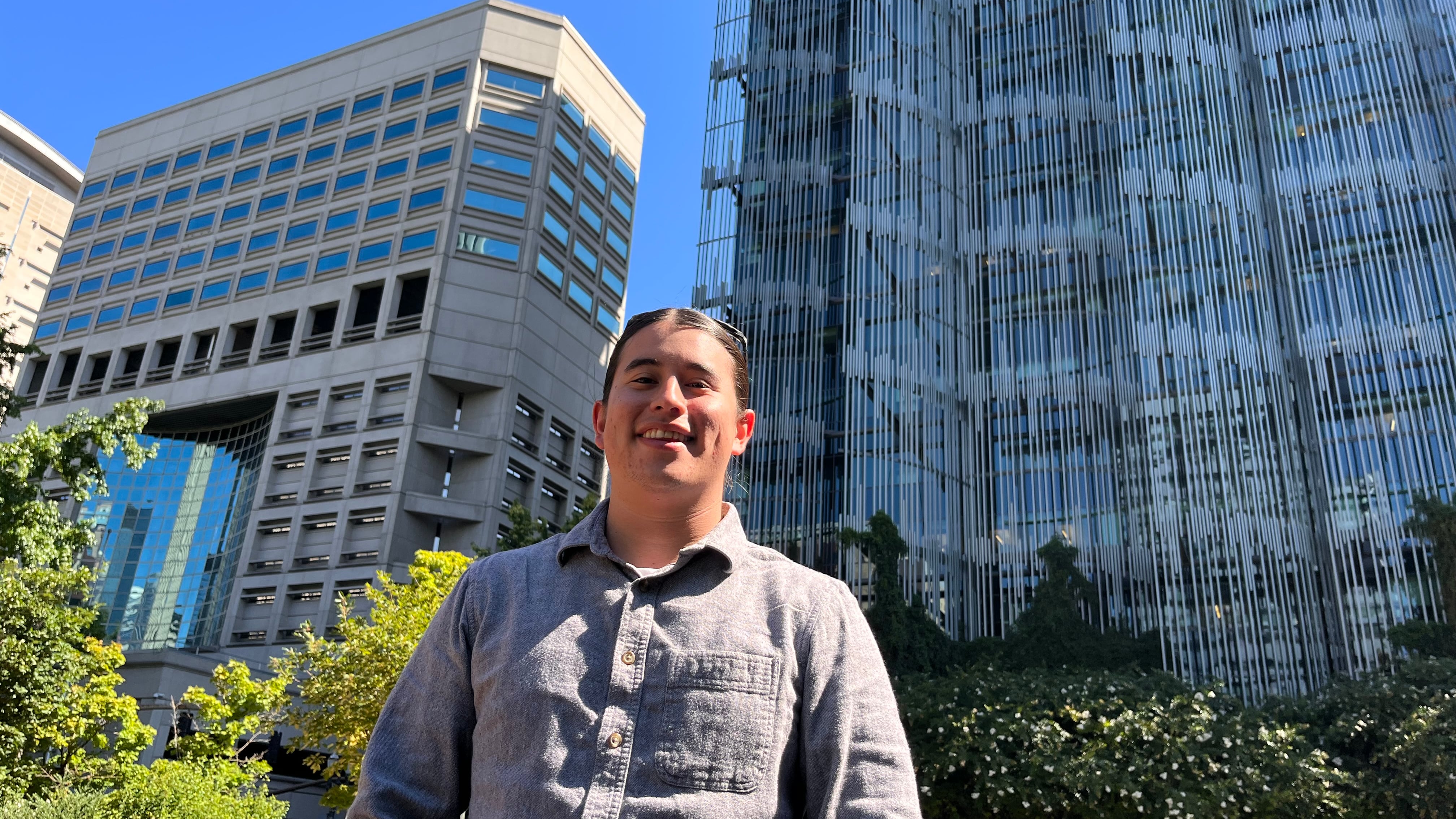Name a West Coast megafire and there’s a good chance Ryan Reed fought it. At age 23, he’s already spent three summers as a wildland firefighter within the U.S. Forest Service. The blazes he’s battled: “Dixie, McCash, and I spent a little time on the McKinney Fire too,” he says. “I lose count.”
Despite all that experience, Reed is uncomfortable fighting fires. He’d rather be setting them, which is why he was in Portland last month in a federal building where the next decades of forest management policy are being hashed out.
Reed is a member of the Karuk, Hupa and Yurok tribes in Northern California (those tribal lands are just across the Oregon border, and he got an environmental studies degree at the University of Oregon). Those tribes for years have lobbied the Forest Service for a return to Indigenous forestry practices, which include regular prescribed burns to reduce the underbrush that turns forests into tinderboxes. The concessions they’ve obtained—including the right for the Karuk Tribe to conduct controlled burns in Six Rivers National Forest—have been hard won (“Fire Power,” WW, Oct. 7, 2020).
That agenda has a larger platform thanks to Reed, who is the sole member of the general public appointed to a 20-member advisory committee that’s crafting an amendment to the Northwest Forest Plan, which controls the use of 24.5 million acres of federally managed lands along the Cascades. In early September, Reed sat down with WW in Terry Schrunk Plaza while the Camp Creek Fire tore through the duff of the Bull Run Watershed, 30 miles east. We talked about his vision for Indigenous control of the West Coast’s forests. The interview has been edited for brevity and clarity.
WW: What’s the hardest part of fighting wildfires?
Ryan Reed: One is simply that fire suppression is kind of against my identity. My people, we use fire as a tool of management, and that means lighting fires. I’m stopping fires on a day-to-day basis. It’s not my fault, nor the fault of the folks I’m working with, why fires are so intense and why fire suppression is so necessary these days. But every day is grappling with the fact that I can’t light fires as much as I would like.
The next component is just that the paradigm fire suppression operates under is a militaristic and very colonialist system.
See, I thought you were going to say the hardest part was that it’s hot.
[Laughs] I mean, don’t get me wrong. The extremes physically that you have to endure, whether it’s heat or the rigorous, back-aching work, it’s tough. A lot of people break down, physically and mentally. That’s a huge component we need to emphasize these days: How are we taking care of our firefighters?
Do you see setting fires as a constructive tool?
Absolutely. I say that confidently, but that doesn’t mean that these catastrophic wildfires that we’re seeing in the media are what I’m talking about. Fire can be our tool, but historically it’s been suppressed, and that’s part of the reason why we’re in the conundrum we are right now—because of the lack of fire in the landscape.
Fires scare people—understandably, if you turn on the news and see images of places being consumed. How do you break through that?
As a firefighter, I’d be lying if I didn’t say I was scared in moments of my short career. They always say, if you’re not scared, you’re a fool, right? I still stay with the fact that using fire is a tool. It is still essential. And it’s important to understand that the colonial past of management led us to why we are in the crisis. In short, let’s look to Indigenous leadership. We Indigenous folks have been here since time immemorial, and we’ve never had the extreme fire suppression and catastrophic wildfires ever underneath Indigenous management.
If you could get rid of the colonial archetype and move to something that comes more from your hometown, what does that look like?
That’s a difficult thing to answer because I grew up in post-apocalyptic times. My ancestors had to endure apocalypse, if you will. Our world has been flipped upside down. And now we’re being asked for our knowledge—to come to the rescue for a problem that we didn’t create. And it’s from the people who did create it.
To answer your question more explicitly, it means having our elders, our women, leading the way again, without repercussions from society. That means having proactive management. It means we’re putting fire in the landscape when it is safe. It’s really giving us a life before contact. That’s what it would look like.
